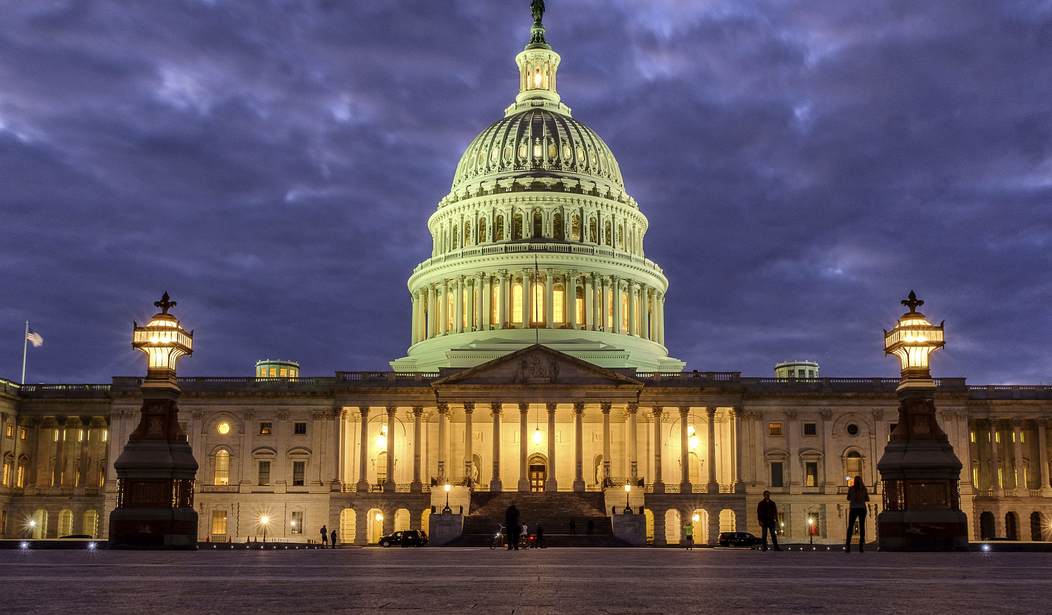Two weeks ago in this column, I asked what is to blame for the weakness of the heads of government here and in Western Europe, institutional failure, voter fecklessness, leaders' personal weaknesses or some combination of all three?
This week, let's look at one of those institutions: political parties. How have they contributed to current woes? How can they perform better?
There are those who would ask, "What would you expect from parties? They're nasty, grubby, selfish, inward-looking institutions, in which intellectual dishonesty is the norm. Why not be done with them and have a virtuous, nonpartisan democracy?"
One quick reply: When and where has anyone had an electoral democracy like that? The framers of the Constitution loathed parties and were wholly unpersuaded by the case Edmund Burke was making for them on the other side of the Atlantic.
But in the 1790s, they quickly formed parties because of disagreements over serious issues like how to finance the federal government and whether to back Britain or France in their world war.
Political parties do provide a certain stability to politics yet also have incentives to respond to evolving events and emerging issues. But recently, they have been doing a rotten job of both in many prominent democracies.
Consider our own parties. In choosing nominees in 2016, Republicans had too many candidates and Democrats too few. They proceeded to produce the most unpopular pair of rivals in history, with Donald Trump beating Hillary Clinton by carrying most of the voters who disliked them both.
Recommended
Now both parties are doubling down. Republicans back President Trump, even as he alienates the voters that cost the party 40 House seats last month. Democrats keep licking their chops over impeaching a president for lying about sex, forgetting how that worked out in the 1990s.
The Democrats' yearning to see Trump humiliated and expelled could prove as repellent to swing voters as Trump's stubborn unwillingness to apologize or confess error.
Meanwhile, the three European M's -- Britain's Theresa May, France's Emmanuel Macron and Germany's Angela Merkel -- are in political disarray after singlehanded policy blunders into which they led their parties.
May's failure to negotiate a genuine Brexit, contrary to wishes of most Conservative Party voters, may be producing her downfall, and possibly her party's. Macron's surrender to the so-called yellow vest demonstrators on the gas tax he ordered his party to enact leaves him with 26 percent approval. Merkel's decision to invite 1 million mostly Muslim "refugees" into Germany, made without consulting her party's parliamentarians or European Union colleagues, leaves Germany with permanent problems.
These leaders acted as if they had mandates, when in practice they have failed to gain, or maintain the support of, 50 percent of voters. Trump got 46 percent in 2016, and Clinton got 48 percent. May's Conservatives failed in 2017 to get a parliamentary majority and govern only with Northern Irish MPs. In Germany that year, the Christian Democrats, founded in 1949, and the Social Democrats, founded in 1875, got only 54 percent put together, the poorest joint result since World War II.
Some democracies have jettisoned longstanding parties altogether. Macron created his own party and reduced his former party, the Socialists, founded in 1905, to 6 percent of the vote. The Italian government is a coalition of two hitherto-splintered parties. Mexico President Andres Manuel Lopez Obrador concocted his own party and won in July, while Brazil's Jair Bolsonaro took over a former splinter party and won in October.
In all these cases, it seems, the candidate has become more important than the party, and the party seems to have abdicated its functions of guiding and cautioning its incumbent once she or he is in office.
This makes the defects of leader selection processes look particularly important. I have long said that the presidential-nominee selection process is the weakest part of the American political system -- and, perhaps not just coincidentally, the one part unaddressed by the framers of the Constitution.
The British party-leader selection processes, arguably even worse, have produced the wacky leftist Jeremy Corbyn for Labour and the hapless Theresa May for Conservatives. May won when David Cameron abruptly resigned after losing the Brexit referendum and Brexit backers feuded, though she opposed Brexit and failed as home secretary to fulfill party immigration and law enforcement promises. She survived a party vote of confidence by only a 200-117 margin.
Parties can do better, and often have in their long histories -- 186 years for Democrats, 164 for Republicans and 184 for British Conservatives. When will they figure out how to do it again?
























Join the conversation as a VIP Member